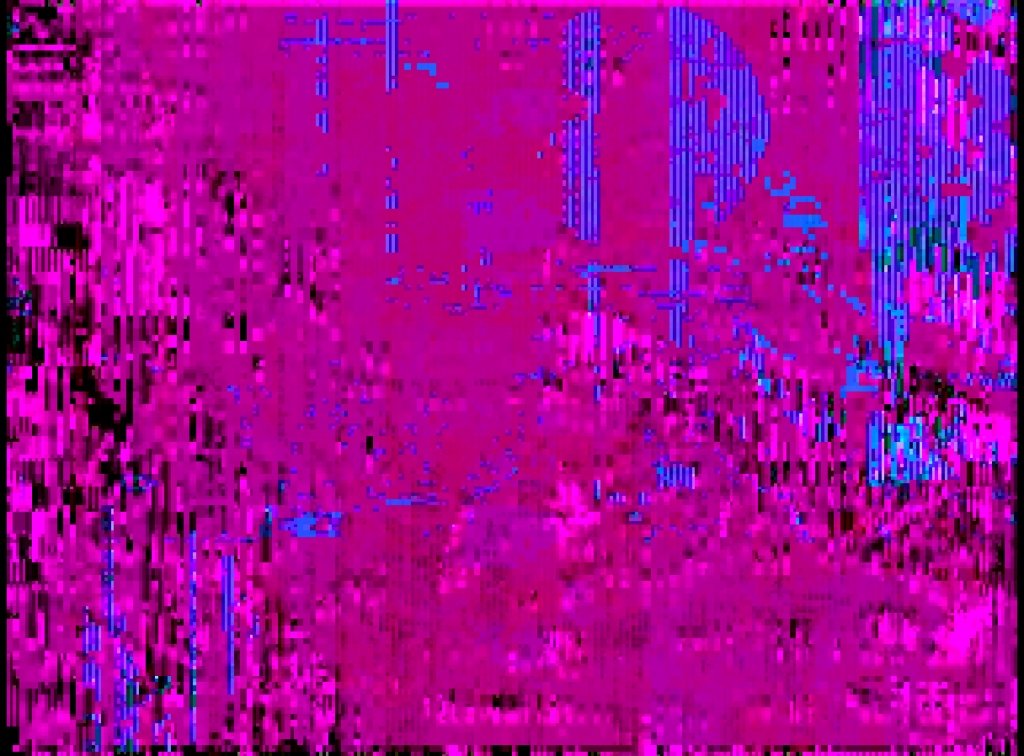At the point we begin using “glitch” to describe analog-on-analog damage, or the digital manipulation of digital files, the term loses potency. A canvas damaged by water, intentionally or accidentally, is not in any obvious way a glitch. A mouse chewing on the cord of an electric printer could produce a glitch, depending on what is output. A digital camera recovered from a washing machine is pregnant with possibility. However, we need to be clear that what is at issue here is not an empirical principle, but an onomatopoetic signifier: glitch. The sound of the word sizzles and quickly dies, but in that moment of sizzling something unexpected is being produced.
